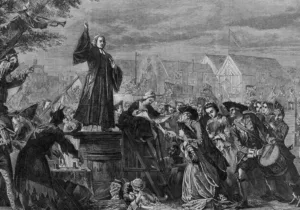Bruno Barreto’s lauded political thriller film Four Days in September (O Que É Isso, Companeiro? 1997) dramatizes the unprecedented violation of international law whereby United States Ambassador to Brazil Mr. C. Burke Elbrick was kidnapped off the streets of Rio de Janeiro on September 4, 1969, by an outfit calling itself the Eighth of October Revolutionary Movement and held for 78 hours. The Marxist MR8 group demanded the release from prison of numerous comrades and the public broadcasting of a manifesto against the CIA-supported Brazilian military regime in exchange for Ambassador Elbrick’s safe return. Although both junta and guerrilla adhered as agreed to the terms of this particular prisoner exchange, the episode illustrates the depth of public resentment against the previous fascist dictatorship in Brazil and the widespread perception that the true source of its power lay elsewhere, themes revisited in Glenn Greenwald’s Securing Democracy: My Fight for Press Freedom and Justice in Bolsonaro’s Brazil (2021), which explores his astonishing personal and professional confrontation with the rulers of his adopted home.
Greenwald is the internationally renowned author of With Liberty and Justice for Some (2011), concerned with the grossly unequal distribution of punishment in the United States, and of No Place to Hide (2014), describing his earth-shaking reporting of the Snowden NSA archive. By his own account, he never intended to directly insert himself into the politics of the Federative Republic of Brazil (1988-), where by chance he had met his husband David Miranda in 2005 and remained to raise their adopted children together. But in May 2019, Greenwald through a trusted intermediary was contacted by an anonymous source who claimed and then demonstrated unfettered access to the secret Telegram accounts of Brazilian senior officials, material that would quickly reveal corruption on a massive scale to the detriment of the young Brazilian democracy.
In Greenwald’s construction of events, the rapid and surprising ascent to the presidency of Jair M. Bolsonaro in 2018, with support from Brazil’s evangelicals, occurred partially as a byproduct of “Operation Car Wash” (Operação Lava Jato, 2015-17). In this scheme, dozens of Brazilian business, financial, and political elites were convicted of a galaxy of corruption schemes centered around the state oil giant Petrobas. Named after the commonplace location of the original tipoff, the Brazilian public and media enthusiastically rallied around its dragon-slaying task of force of young prosecutors led by Deltan Dallagnol and around Curitiba trial judge Prof. Dr. Sergio Fernando Moro, who convicted even former President Luiz Inácio Lula da Silva of the Workers’ Party on corruption charges. Lula would likely have beaten Bolsonaro in the upcoming election, and upon taking office the latter greatly over-promoted Moro to minister of justice and public security. Nonetheless, despite the apparent quid pro quo between them and the often aggressive disregard for civil liberties imputed to Moro in order to secure his convictions, Greenwald remained agnostic until the presentation of the explosive compromising material. “So when I received the archive filled with secret Car Wash chats and documents, I was skeptical of some of their work, but not filled with entrenched hostility toward the probe or a belief, outside of a few isolated instances, that it had been either politicized or systematically corrupt” (56).
But upon receipt of the vast log of material, and with the technical and editorial support of the Intercept Brasil, Greenwald beginning on June 9, 2019, published three articles in English and Portuguese that respectively revealed massive collusion between Judge Moro and the prosecution team, the political conspiracy within the task force to do lasting injury to the Brazilian Left, and prosecutorial awareness of the serious weaknesses in its case against former President Lula. “It became clear,” writes Greenwald, “that the magnitude of the corruption that was materializing in these documents was explosive beyond what I could appreciate” (129). Official denunciation but not denial ensued; with his credibility established, Greenwald was soon able to partner with the established Folha and Veja newspapers.
The consequences of the reporting were felt throughout Brazil. Moro’s reputation lay in ruins, the Supreme Court ordered the immediate release of Lula based on the revelations, and Dallagnol was forced to vacate his post. Greenwald’s personal life in Rio de Janeiro, meanwhile, has been ruined as a result. Forced to live and travel under heavy private security, and subjected to forged transactions, constant threats of imprisonment, deportation, and assassination, endless fake news and obscene attacks upon his homosexuality from Bolsonaro supporters, Greenwald, Miranda—now a federal deputy—and their two sons have been forced to accommodate a state of siege within a formally democratic nation.
Securing Democracy does not furnish a scholarly survey of Brazilian state, society, political economy, and foreign relations, an absence of perspective occasionally felt. For example, if Greenwald—who is highly proficient in Portuguese—had consulted Judge Moro’s doctoral thesis (2002) at the University of Curitaba about the decisive but ambivalent role of judicial review in democratic self-determination, then he would have more fully apprehended the hero complex of his formidable antagonist and been able to deliver the same to the reader. Greenwald also makes some questionable remarks (1, 6) about American foreign policy as a whole, which correspond to his relentless confrontation with neoliberal elites over Twitter. And the sustained account of the appalling 2018 assassination of black, lesbian, and socialist Rio councilwoman Marielle Franco by paramilitary militia, whilst furnishing a captivating account of her beautiful life, impressive achievements, and most foul murder, may not bear directly upon the central question of corruption by Moro and the Car Wash prosecutors.
Of enduring normative concern, however, is the apparent absence of qualitative distinction between hacking, leaking, and reporting in Greenwald’s mind. “In the digital age, the ability to leak huge amounts of information at once is a major vulnerability for power centers and a unique opportunity for journalists,” he states. “As the world’s most powerful institutions increasingly store their secrets in digital form, there is little doubt that leaks of the kind my Brazilian source provided will be vital for journalism in the years ahead” (65-66). His analysis is doubtless correct, but power is not equivalent to guilt, nor weakness to innocence. A journalist doggedly pursuing a story is a different actor, in intent and outcome, from an anarchist looking to discredit or to destroy state institutions that have by consent of the civilized world imposed public order over a given fragment of the Earth’s surface. No one elected Julian Assange to anything; the WikiLeaks platform he created in 2006 arrogates for itself the right to judge what the public ought to know. Mr. Snowden, upon entering the CIA, swore an oath to uphold the United States Constitution. With respect in particular to the Pentagon Papers revealing the entirety of executive branch’s perfidy in Vietnam and to Greenwald’s more recent exposures of American mass surveillance and of judicial corruption in Brazil—one could forcefully argue that every constitutional means for maintaining accountability had already been exhausted before the leaktivism supplied their place. But that is a different question from hacking or leaking merely to pursue a personal or partisan vendetta.
Nevertheless, the tremendous integrity and indomitable courage of a journalist who chose to confront a reactionary regime at immense cost to himself is on display in every chapter of a riveting memoir at the intersection of comparative politics and investigative reporting. Although the implications of his praxis may appear troubling in other prospective contexts, in the Brazilian they were recently applied to redress grievous wrong, very possibly helping save the life of a democratic regime that, Greenwald provocatively reminds us, “is only thirty-five years old” (224). Securing Democracy therefore relates a great victory for a non-theist theology of liberation.






 Sponsor a student for Christianity & National Security 2024
Sponsor a student for Christianity & National Security 2024